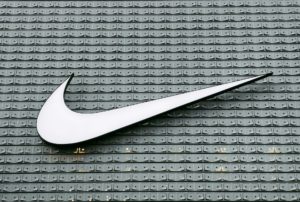The beautiful city of Dubai remains one of the most attractive destinations for overseas workers in the world. Around 70% of the Emirate’s young professional workforce is made up of ex-pats drawn to the City of Gold because of the multiple benefits of working and living in Dubai.
With the pandemic changing the way we live and work, Dubai has doubled down on its attractiveness to foreign workers by introducing a remote work visa. The remote work visa in Dubai allows workers to travel to the Emirates and enjoy the many benefits of living in the City of Gold, while still working remotely for their original employer.
In this article, we’ll be going through the specifics of the remote work visa in Dubai, covering its pros and cons, what the eligibility criteria are, and what kind of jobs are most likely to allow you to get a remote work visa in Dubai.
So, if you want to swap your daily grid for the sun-drenched sands and bustling metropolis that is Dubai, all without changing your career, read on to find out how a remote work visa in Dubai will let you do exactly that.
What Is the Remote Work Visa in Dubai?
The remote work visa in Dubai is a direct reaction to the way in which the coronavirus pandemic impacted the way in which we live and work.
The social distancing restrictions put in place to combat the spread of Covid-19 precluded the usual office and retail culture that was the working paradigm of millions of people across the globe.
In response, many companies accelerated their digital adoption, turning to remote working to allow their workforce to continue to be productive. As a rule, these measures have been successful. Survey results from 2020 indicate that, despite having the majority of staff working from home, most companies reported that company productivity has been the same or higher.
Workers have also reported a productivity gain of around 40% over their office-bound counterparts. This increase in productivity comes alongside better job satisfaction and better mental health. Given the benefits of working from home, it is unsurprising that 65% of workers surveyed by FlexJobs wanted to be work from home full-time post-pandemic, and 31% want a hybrid remote work environment
With companies happy with productivity, 80% of company leaders plan to allow employees to work from home part of the time after the pandemic and 47% will allow employees to work from home full-time.
In response to this wider call for, and adoption of, remote working, Dubai has introduced a remote working visa. The visa is similar to those programs rolled out in tourism-reliant destinations such as Barbados and Thailand, designed to attract overseas professionals with the promise of luxurious surroundings while still being able to work from anywhere.
The Dubai work visa is valid for one year and will allow visitors to live and work in the City of Gold. Unlike other short-term tourist visas, the remote work visa is specifically geared towards those looking to work from home for a 12-month period.
To facilitate visitor’s ability to work from anywhere, the Dubai work visa grants access to all the standard services that full-time Dubai residents already benefit from, such as access to telecoms, utilities, school enrollment for children, and the ability to open a bank account.
We’ll be going into more detail about the eligibility criteria later in this article, but the brief overview is that the visa costs $611 in total and applicants must have a passport with a minimum of 6-months remaining on it, health insurance with coverage that extends to the UAE, and proof of a salary or business income of a minimum of $5,000 per month.
What Are the Benefits of Getting a Remote Work Visa in Dubai?
As a global hub for both business and tourism, working remotely in Dubai offers visitors a huge range of benefits, including:
It’s Easier Than Moving Permanently
Compared to moving to Dubai on a full-time basis, the remote work visa has far fewer restrictions and a wider eligibility. Permanently moving to another country is a huge step to take and often means leaving loved-ones behind and changing employers.
The Dubai remote work visa is a unique opportunity to spend a year enjoying all the benefits the City of Gold has to offer, without needing to go through the stress of applying for a full-time visa, permanently leaving your home country, or changing your employer.
A Tax-Free Salary
One of the major benefits of working from home in Dubai is the fact that you won’t have to pay income tax. That’s right, all the money you earn while you are working in Dubai is yours to keep. Since there is also no value-added tax (VAT) to pay on food or goods, shopping in Dubai can actually be cheaper than in other countries, despite the city’s reputation for being a home to the ultra-rich.
Being able to earn tax-free means you can move to Dubai for 12-month and actually see an increase in your take-home earnings. A little extra money in your pocket means you can increase your savings, book a well-earned vacation or two, or just splash out on some luxuries at some of the world’s most famous shopping malls.
Whether you can take advantage of the lack of income tax offered by working in Dubai depends on the tax laws of your country of residence. It’s always best to check taxation rules before applying for a remote working visa.
An Excellent Working Environment
Dubai is rightly famous for its amazing weather and more than 1,000km of beautiful beaches. The city enjoys more than 300 days of sunshine per year and the temperature rarely drops below 20ºC.
If you’re used to working in a colder and darker environment, then moving to Dubai for 12-month to work remotely is an excellent chance to spend some quality time in a sun-soaked paradise.
The mental health benefits of working from home are certainly compounded when the home you’re working in is just a short distance away from a golden beach or a beautiful green park. In fact, Dubai offers some of the best quality of life available in the MENA region.
The quality of life offered in Dubai is, in fact, one of the major selling points of the visa, with His Excellency Helal Saeed Almarri, director-general at Dubai’s Department of Tourism and Commerce Marketing stating that:
“People continue to prioritize their health, wellbeing, and ability to ensure a positive work-life balance. Dubai is uniquely positioned to offer a safe, dynamic lifestyle opportunity to these digitally savvy workers and their families while they continue to work remotely, whether it is for a couple of months or an entire year.”
A Multicultural Metropolis
Dubai is home to more than 200 different nationalities and an amazing 90% of the population comes from outside of the United Arab Emirates (UAE). Unlike other cosmopolitan capitals, such as London, New York, or Beijing, which are old enough for their culture to have homogenized, most of the population of Dubai are first-generation immigrants.
The sheer diversity of the population has resulted in Dubai being a bustling cultural melting pot, filled with vibrant traditions from across the world.
The city of Dubai is also a cultural capital for the Middle East and North Africa (MENA) region, filled with amazing works of art and architecture. The recently established Alserkal Avenue art district has been so prolific in its output that Dubai has been named the Modern Art and Design capital of the Middle East.
As you might expect from such a diverse city, Dubai also has a thriving food scene, with a menu composed of chefs of Arab, Persian, Indian, Pakistani, Filipino, French, Japanese, and Chinese origins, among many others. In short, the city of Dubai is one of the most amazingly culturally diverse cities in the world.
English is Widely Spoken
Unlike many other cities in the Middle East, English is the most prevalently spoken language in Dubai. As the international language of global business, the proliferation of English in Dubai means there is very little language barrier for ex-pats to overcome, making it far easier to live and work in the City of Gold.
A Strong Economy
One of the reasons that Dubai is referred to as the City of Gold is because of its meteoric rise from a sleepy fishing village on the Gulf to one of the cosmopolitan cities in the world and a cultural and business hub for the entire region.
While Dubai’s current growth rate isn’t quite as astounding as it was at the start of the century, the Emirati Dirham (AED) remains a strong currency and Dubai’s GDP continues to increase at a steady rate of around 5% per year.
Dubai’s strong economy translates into excellent infrastructure and the city has world-class transportation, entertainment, education, hospitality, and healthcare facilities available to those who live there. As part of the Dubai remote working visa, you’ll have full access to this world-class infrastructure, which isn’t normally available to short term visitors.
A Global Business Hub
With one of the business airports in the world, Dubai acts as a business and transportation hub between the MENA region and the rest of the world. This makes it an excellent destination for those whose job requires them to act as a face for their business and make and maintain business relationships.
Being in the middle of such a diverse business melting pot also gives you the chance to improve your own skillset. According to research by HSBC, 71% of people who work abroad when they’re under 35 learn new skills.
Working in Dubai gives you access to an unparalleled global network that, even while working remotely, allows you to access new business opportunities, potential business partners from the region, and even look for new job opportunities on a global scale.
It’s a Safe City
Dubai is widely recognized as one of the safest large cities in the world. The Dubai police force is well funded, well respected, and famously efficient. The strong economy of Dubai means the emergency services are also incredibly well equipped.
The police have access to a fleet of supercars, including an Aston Martin One-77, a Bentley Continental GT, three hybrid Porsche Panameras, two BMW i8s, and a Bugatti Veyron.
Dubai firefighters use water-powered jetpacks to avoid the city’s heavy traffic and fight fires in some of the tallest buildings in the world.
The emergency room (ER) doctors use virtual and augmented reality technology to help paramedics provide treatment to patients in a customized Lotus Evora ambulance on the way to the hospital.
In addition to having excellent infrastructure and emergency services, Dubai reopened to tourists on the 7th of July 2020 and has already been awarded a ‘Safe Travels’ stamp from the World Travel & Tourism Council (WTTC).
Additionally, the city has introduced its own Dubai Assured stamp that assures visitors that restaurants, hotels, and entertainment venues have stringent anti-Covid-19 protocols in place to protect their health.
Excellent Schools
One of the highlights of the Dubai remote work visa is the fact that it gives you access to schools, meaning your children can come with you on your 12-month remote working visit to the city without it impacting their education.
Dubai plays host to some amazing international schools, which isn’t surprising in a city where 90% of the professional population comes from overseas. Schools in Dubai offer both amazing educational opportunities and a huge range of extra-curricular activities. The primary teaching language in all schools is also English.
Outside of school, Dubai is an amazing child-friendly city with a vast array of leisure options for you to choose from. These options include huge gardens, amazing beaches, theme parks like Legoland and Aquaventure, and even a five slope indoor ski resort in the middle of the Arabian Desert that plays host to the world’s first 400-meter long indoor black run.
Fantastic Entertainment Options
All work and no play can be extremely dull, even when you are working from home. The good news is that Dubai has a myriad of options for you to induce in some amazing downtime after the workday is done.
The City of Gold boasts some of the best shopping malls in the world, excellent restaurants, world-class theaters, cinemas, ice rinks, aquariums, and, as we already mentioned, a huge ski slope in the middle of the desert.
While Dubai is still a majority Islamic city, guests in Dubai can consume alcohol as long as they are respectful of the city’s Islamic heritage and only consume it inside restaurants, hotels, and bars, or clubs owned by the hotels.
The restrictions on alcohol consumption don’t hurt Dubai’s nightlife and it’s common to find beach parties, club nights, and other social events being held throughout the year. Added to these are the many festivals, celebrating everything from film to food, that are held on a regular basis.
If you’re a sports fan, you can watch some of the biggest international sporting events inside some of the most high-tech air-conditioned stadiums in the world. The city itself also has thriving football and cricket leagues.
What Are the Downsides of Getting a Remote Work Visa in Dubai?
While we’ve set out the huge range of benefits you can expect when working remotely in Dubai, there are some downsides to the remote work visa. To give you the fullest picture of what remote work in Dubai is like, we need to address the cons as well as the pros.
The Culture Shock
As we mentioned earlier, Dubai is a supremely cosmopolitan city with a diverse population from around the world. However, there is no getting away from the fact that moving to a different city in another part of the world could result in a little culture shock.
No one likes feeling like an outsider and it can be hard to acclimate to a different set of social rules and work habits.
The good news is that Dubai is home to multiple thriving ex-pat communities, each with its own social network. Connecting with one of these networks can lessen the feeling of a culture shock when you arrive by allowing you to interact with people from your own background.
The city is also very welcoming to overseas workers. A huge 90% of the professional workforce is made up of non-natives and Dubai makes foreign workers feel as welcome as possible.
The Stress of Moving
Moving your entire life to a completely new country, even if it is just for 12-month, is an extremely stressful thing to do. Settling into a new home and a new way of life can be exhausting and you’ll still need to be as productive as you were back in your own country.
Learning the ways of a new city, even one as welcoming and multicultural as Dubai can take time and effort. Your first few weeks in Dubai could see a significant increase in your mental load before you settle in.
The Time Difference
Depending on your job role and responsibilities, moving to a different city in a different time zone might make keeping consistent working hours a lot more difficult.
If you are, for instance, required to give daily presentations to a head office in Washington DC, you’ll need to accommodate for an 8-hour time difference. If you work internationally and need to make contact with a variety of people in different countries, you may find yourself working during the small hours of the morning.
Keeping track of the different time zones and the new impact they have on your work-life balance is one of the more significant downsides to working remotely from abroad.
It Can Be Isolating
Dubai and its people are very welcoming to outside visitors. However, there is no escaping the fact that moving to another country might mean moving away from your friends and family.
The first few days in a new city where you don’t know anyone can be very isolating and some people may find it overwhelming.
The flip side of this is that the Dubai work visa is only for 12-months and you can both bring your children with you and enroll them in local schools.
Decreased Visibility
Depending on the culture of the company you work for, moving to a different country and not being involved in the corporate culture of your workplace can make you feel less visible. Even though many workplace social activities have been curtailed by the pandemic, difficult time zone matchups can make it seem like you are entirely isolated from your coworkers.
If you are looking to be in a position where your work is at its most visible and you are pushing for a promotion, certain position, or just a pay rise, moving to Dubai might not be the best move.
That being said, many companies are now entirely invested in pivoting towards greater remote working in the future. As the way we work changes in response to this greater digitization of the workplace, employers will need to make cultural changes to avoid staff being disadvantaged by their geographical location.
It's a Short Term Visa
The Dubai remote work visa isn’t a backdoor pass into living in Dubai full time. You’ll be given leave to live and work in Dubai for 12-months and once that period is up you’ll be expected to leave.
If you’ve been living and working in Dubai, with all the benefits that full-time residents have, it can be hard to uproot your entire life and move again. This is particularly true if you’ve fallen in love with the city.
If you do find yourself thinking seriously about moving to Dubai full time, you should look into getting a permanent work visa, something we’ve already written an article about, as soon as possible.
What Are the Eligibility Criteria for the Remote Work Visa in Dubai?
Now that we’ve discussed the pros and cons of getting a Dubai remote working visa, we’ll get down to the nuts and bolts of who is eligible for the visa and what proof you’ll need to present in order to progress your application.
To be eligible to apply for the Dubai remote worker visa, you will need the following:
- A passport with at least 6-months remaining validity: Many countries around the world require you to have at least six months of validity remaining on your passport before you can pass through immigration.
China, Thailand, Egypt, and Turkey require at least six months while the European Union, Australia, Canada, and the USA require your passport to be valid for the full length of your stay.
The rules on passport validity are generally to ensure that you won’t get stuck in a country when your passport expires and that you have sufficient time to apply for a new passport, or emergency extension, while you are staying there.
- Health insurance with UAE coverage validity: The remote working program will also accept travel insurance with healthcare coverage that has a minimum of two weeks validity. If you do choose to apply using travel insurance with healthcare coverage, this will need to be upgraded to UAE health insurance once your visa formalities have been completed.
- Proof of employment from your current employer with a one-year contract validity: The entire point of the Dubai remote working visa to allow people to live in Dubai while working remotely for their original employer, so it makes sense that proof of employment would be required.
- Minimum monthly salary of USD 5,000 monthly: If an applicant is employed they will need to prove that they have an average salary of more than $5,000 per month. This salary cap is to ensure that anyone moving to Dubai is able to properly support themselves during their 12-month stay.
- Last month’s payslip and the three preceding months’ bank statements: These documents act as proof of the required $5,000 per month salary required to be eligible for the removed working visa.
- For business owners: proof of ownership of the company for one year or more, with an average monthly income of US$5,000 per month and 3 preceding months’ bank statements: If the applicant is self-employed or a business owner, they will need to provide evidence that their average income is more than $5000 per month. The actual amount doesn’t have to exceed $5000 per month as long as the three-month total adds up to an average of $5000 per month.
- US$611: The $611 processing fee covers application fees, processing costs, medical and Emirates ID. Paying the fee does not guarantee approval of the application and the fee is non-refundable.
What Kind of Jobs Will Allow Me to Get a Dubai Remote Work Visa?
Now that we’ve given you the details of the eligibility criteria and the general reasons behind the requirements, we can use them to narrow down the kind of jobs that will allow you to get a Dubai remote work visa.
As a rule, you will need to be able to work remotely across diverse timezones, have an income of more than $5000 per month, and work for a company with a flexible approach to your work location.
To give you an idea of the best jobs suited to working remotely in Dubai, we’ve listed some great examples below. These examples represent roles that fit the profile of remote work overseas that you might already have, or possible career-switching opportunities if overseas remote work appeals to you.
Software Developer
Over the last few years, Dubai has taken steps to transform itself into a hub for technology companies and tech start-ups. The effect of the Covid-19 pandemic has only accelerated this digital adoption.
Because of this focus on moving into the digital age, Dubai has excellent infrastructure in place to support software developers working in the city. The Dubai Internet City is one of the largest innovation and technology hubs in the MENA region and is already gaining a reputation as the “Silicon Valley of the East.”
Most software developer positions are well suited to remote working as long as they are situated somewhere with good communications infrastructure and many software developers now work on a freelance basis.
Responsibilities:
- Writing and implementing effective code solutions.
- Testing and evaluating new programs and applications.
- Training other users on how to safely and effectively use software tools.
- Creating and deploying quality assurance procedures.
- Researching, creating, deploying, and managing software programs.
👉 Browse Software Development Jobs on GrabJobs
Freelance Content Designers
Digital content and content marketing have become hugely important as many customers have moved at least part of their lives online over the course of the last year.
Social media is now one of the largest influencing factors in how we shop online and in the absence of traditional advertising media due to the pandemic, many companies have refocused their marketing effort on digital content.
Most freelancers already work from home and have a business skillset that prioritizes working with diverse clients across the world. The major drawback to applying for the Dubai remote work visa as a freelance content designer is the requirement to have a consistent income of $5000 for the past three months.
However, if you have enough customers to keep your income stable and you feel the need to work in the beautiful sunshine of the City of Gold, a freelance content designer is an excellent fit for the remote working visa.
Responsibilities:
- Designing and deploying innovative content that shapes customer opinions.
- Working with clients to generate a fuller understanding of their needs and goals.
- Tracking and implementing up-to-date SEO practices.
- Understanding social media trends and adapting content to take advantage of them.
- Turning complex ideas into approachable and easy-to-read content.
👉 Browse Freelance Content Design Jobs on GrabJobs
Digital Product Managers
The responsibility of a digital product manager is to oversee a digital product through its entire life cycle, from its initial conception right the way through to its launch. Digital product managers have a diverse skill set that covers market and customer research, product development and design, UX creation, and even logistics planning.
Because, as you might expect, a digital product manager is a largely digitally focussed position, the role adapts well to remote working. The only blocker to doing that remote working overseas is the difference between time zones, as this can inhibit collaboration with others of the project.
Responsibilities:
- Manage the product roadmap for the entirety of its lifecycle.
- Oversee and manage the overall design, feature development, and user testing.
- Liable with executive teams to understand key capabilities needed.
- Work closely with marketing to create a persuasive and compelling brand.
- Communicate with cross-functional teams to ensure proper alignment on project goals.
👉 Browse Product Management Jobs on GrabJobs
Cybersecurity Professionals
Cybersecurity is one of the fastest-growing professional areas in the world. In fact, around 74% of respondents to the ESG/ISSA research report say that their firms are being affected by a shortage of qualified cybersecurity professionals.
The worldwide information security market is expected to continue to grow over 2021 and beyond, reaching a predicted value of $170.4 billion by 2022. The reason for this growth is an equally rapid expansion in the rate and cost of cybercrime.
Around 68% of business leaders feel their cybersecurity risks are increasing and these risks can have severe financial consequences. The average cost of a data breach is around $3.86 million and between January 2005, and May 2020, there were 11,762 recorded breaches. Businesses lose $17,700 every minute just due to phishing attacks.
Given the need for experienced cybersecurity personnel and the extremely competitive and flexible employment packages they are offered, the role is an excellent fit for the Dubai remote working visa.
Responsibilities:
- Incept and manage the deployment of disaster recovery/business continuity plans.
- Perform regular audits to ensure compliance with established security practices.
- Deploy endpoint detection and prevention tools to protect against attacks by malicious actors.
- Educate other staff on the importance of cybersecurity and the costs of non-compliance.
- Implement user access controls and identity verification systems to protect sensitive data.
👉 Browse Cybersecurity Jobs on GrabJobs
Cloud Infrastructure Experts
Recent years have seen a massive increase in the number of companies moving away from physical IT technology and investing in virtual computing and storage known as the cloud. The global cloud computing market is predicted to grow to in excess of $330 billion in 2020. Businesses around the world spend an average of 2.2 million per year on cloud computing.
Cloud infrastructure experts help companies migrate their information and services into the cloud without any disruption to their operations. Working closely with their clients, cloud infrastructure experts are able to help select the appropriate cloud technology, weaknesses and recommend system improvements.
Generally, the role requires a background working with system architecture components and a deep understanding and experience of networking and software. In order to properly communicate with, and understand the needs of, customers, cloud infrastructure experts also need soft skills, such as strong collaborative skills and excellent analytical reasoning.
Responsibilities:
- Work with clients to identify the key capabilities required for cloud computing solutions.
- Independently plan, install, integrate and validate systems software and hardware solutions.
- Manage technical change implementation across environments.
- Acquire and apply a broad knowledge of the business, its products, and processes to potential cloud solutions.
- Resolve issues and navigate obstacles to deliver work product with minimal disruption.
👉 Browse Cloud Infrastructure Jobs on GrabJobs
Financial Analyst
Broadly, financial analysts work with financial institutions to track and research macroeconomic and microeconomic conditions. This data is then compiled with company fundamentals to create predictive models that can be used to make business and investment decisions.
Many financial analysts specialize in certain areas or types of data and the role requires a deep understanding of the developments in their specialist fields.
For instance, a financial analyst at an investment bank might use forecasting models to be able to provide senior partners with data-driven insights and recommendations on whether to invest in certain companies and start-ups.
Responsibilities:
- Advise senior management on investment and acquisition opportunities.
- Analyze financial data and create financial models to drive recommendations.
- Provide an analysis of upcoming trends, forecasts potential outcomes, and recommend actions for optimization.
- Perform market research, implement data mining, and create actionable business intelligence.
- Evaluate financial performance by comparing outcomes to forecasting.
👉 Browse Financial Analyst Jobs on GrabJobs
A Once in a Lifetime Opportunity
The Dubai remote working visa is an excellent opportunity for a dynamic professional to take advantage of changes in the way we work to spend time living and working in one of the most exciting cities in the world.
Professionally, working in Dubai puts you at a crossroads in the business world, able to network with and learn from other professionals from across the globe. On a personal level, the City of Gold offers many benefits to visitors, including amazing weather, fantastic entertainment opportunities, great infrastructure, and a remarkably high standard of living.
The Dubai work visa is unique in that it gives remote workers access to the benefits normally reserved for long-term residents, including schooling, telecoms access, utilities access, and the ability to open a bank account.
We’ve listed a few of the careers that have the earning potential and flexibility to be a great fit for the Dubai remote work visa. However, if you aren’t in one of those professions, don’t give up hope.
Grabjobs is here to help you pivot into a career that you love and one that gives you the flexibility to pursue once-in-a-lifetime opportunities like spending a year living and working remotely in sunny Dubai.






